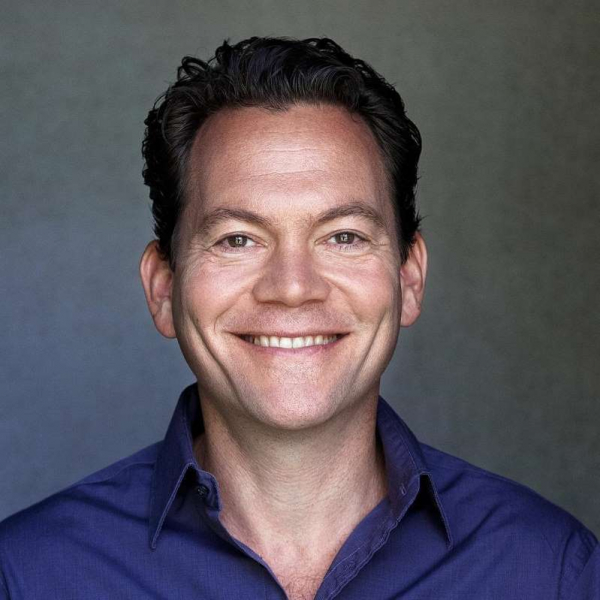Jens Wolff is a career and life coach. A conversation about the search for the dream job. Claudia Weber

KURIER: “What do you want to be when you grow up?” You were probably asked this question as a child. What was your answer?
Jens Wolff: As a little boy I wanted to be a boxer. When I was older, I wanted to be a lawyer. That was my father's dream of a career. That's why I also studied law at the beginning.
Out of love for your father, you have chosen a job that he wanted for you. How would you act in retrospect?
Now I would go into the things that really interest me.
What role should parents play in their children's career choices?
If the goal is to be happy with the job, the most important thing is that parents are good role models. For example, if the father always comes home from work stressed and listless, the children learn that work has nothing to do with fun. In addition, they shouldn't put any pressure on their children and trust that they will find something that will fulfill them. Nor should you steer in any particular direction. Parents can be very blocked when they have a fixed idea of their child's career choice.
When should young people start to grapple with the question of career choice?
As early as you can and as early as you want. A guideline is that you should deal with the topic for the first time at the age of 15 or 16. But without making a decision now, so without pressure to ask the first questions.
What first steps should you take as a young person?
There are children who know what interests them from an early age and then there are those who have no plan at all and of course the many variations in between. The most important thing is that you get to know yourself well in order to be able to do what interests you every day in the future.
How do I find out what really interests me?
In which you try out a lot and look at companies and jobs. Especially at the age of 14-16 it is important that the parents show the children a lot or that you go on a discovery tour yourself. Visited the open day and got a taste of companies.
It's difficult in these times.
That's true. Then you should make the best possible use of the Internet, watch videos of how people work, what they do, who they are. Are the processes and tasks in the job the way you imagined? Books also help a lot. When you read portraits of people and ask yourself: Am I like that too? Who can I identify with? Because at the age of 16 or 17 you already know your basic values.
So is the question of career choice a question of: “Who do I want to be?”
Yes, because you always become what you do. In coaching I also advise you not to ask what you want to do, but who you want to be. That is why it helps so much to talk to people who are sympathetic to you or who have an interesting job. Do you have the same language, the same values? Do you want to be like that too? The next step is to figure out how to get there.
Which methods help here?
Imagine that you can ask your future self how you should decide whether you should take path A or B or do this or that training. Or you look for people who are already where you want to go and talk to them about their path and their experiences. I also always give one tip: Always only take advice from someone who is already where you want to be and not from people who have a different value system or lead a completely different life than you.
How can you become aware of your strengths and skills?
A sign of strength is that it is something that comes easily to you. But you can also get feedback from relatives and friends and ask: What distinguishes me? What am I good at?
If you can't decide, is it better to start somewhere and do something or wait and see?
It is always better to start. The Americans say: “The best way to be in business is to be in business.” Moving is always better than doing nothing. You can take two to three years to try it out. But doing nothing leads to enormous pressure at some point, because friends are often almost finished with their first studies while you haven't started anything yourself.
How do many young people fail when choosing a career?
You often have a certain image of a job that is not true. You don't know enough about the job market or about yourself. You haven't tried enough.
Should you take a path that is fun or one that brings money and good future prospects?
My answer here is always: do what you like to do and then get so good at it that you are successful with it and make good money. Of course there is always a framework for it. If you want to be an actor, your chances of being among the top earners are simply smaller than if you were to become an investment banker. But you should always do what is fun. Because if it's not fun, you won't throw yourself into it like those who enjoy it and then you won't be as successful and in the end the job isn't fun and doesn't bring any money. On the other hand, there is hardly a job that does not make a good profit if you are among the best.
Your best tip for young people when it comes to choosing a career?
Most people take far too little time to think about what makes them really happy professionally, and then even the most successful at 40 discover that they are not satisfied with their job. That is why I always advise looking inward and not looking for the solution outside. Who are you and where do you want to go? And it is very important that you gain work experience early on, for example doing internships in the summer, so that you get a realistic picture of the world of work.
What else do you need for professional happiness?
Leaving the comfort zone. If you want to be happy, you have to do more for it and stay tuned to make your dreams come true. Many imagine success too easily.

To person
Jens Wolff (46) is a psychological life and social counselor, certified coach and trainer and father of two. After his certification, he coached Steve Gill, Head Coach of Tony Robbins, for three years. In the last twelve years he has been able to support over 1,000 clients on professional and private issues. In addition to studying law, he began to deal with personality development and mindfulness in order to focus his mind and develop himself further.
www.jenswolff.at

